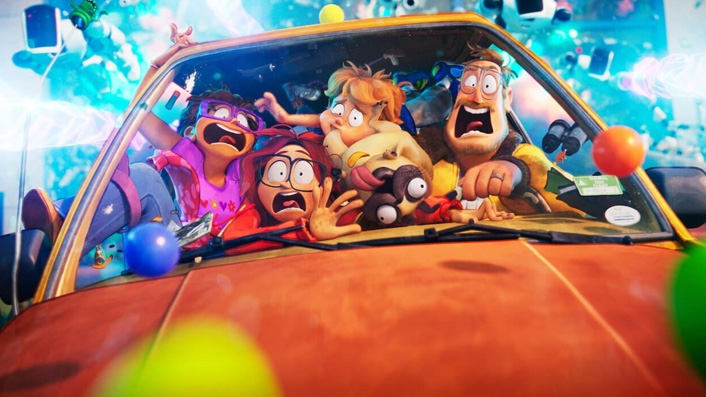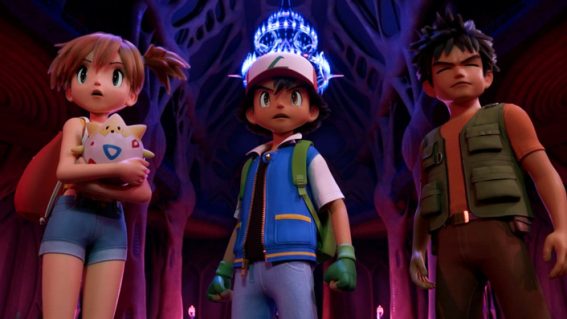Netflix’s robocalypse comedy The Mitchells vs the Machines is a wildfire of visual splendour

A family’s road trip gets interrupted by a sinister tech uprising in Netflix‘s new animated sci-fi comedy. As Liam Maguren observes, the inspired visual chaos and relentless comedy make for a gleeful depiction of humanity’s downfall.
Just a few decades ago, the complex thought of artificial intelligence gaining sentience and overthrowing the human race was found in only the most far-reaching and cerebral science fiction stories. In today’s world, where an eight-year-old can learn how to code while ordering a burrito on the same device, the idea of a robot uprising doesn’t seem all that buzzy (or implausible). So perhaps it’s unsurprising that a very modern and riotously goofy film like The Mitchells vs. the Machines can also take on these themes with ease.
See also:
* All new streaming movies & series
* Movies now playing in cinemas
Essentially smooshing together a road trip comedy with an action sci-fi, the story centres on the angsty relationship between teenage moviemaking nerd Katie (voiced flawlessly by Broad City‘s Abbi Jacobson) and her computer-illiterate dad Rick (played by an unrecognisably warm-hearted Danny McBride). When it comes to Katie’s future, they’re not on the same page, and while that sounds like a screaming match waiting to happen, the film does a surprisingly good job keeping their feuds grounded in more believable states of awkward conversation. The true victims are her mum Linda (the ever-reliable Maya Rudolph) and little brother Aaron (co-director Michael Rianda) who have to bear witness to this.
Elsewhere, the carelessness of a tech guru (a perfectly cast Eric André) leads to a scorned Siri-like AI (Olivia Colman, also perfectly cast) to bring on the robocalypse. This all happens in mere minutes, showcasing the film’s gleeful depiction of humanity’s downfall.
And if you’ve seen a trailer or a clip or even just the poster, you’ll understand how wonderfully silly this film is just on a visual level. Jumping off from their 2018 masterpiece Spider-Man: Into the Spider-Verse, which brought 2D comic book sensibilities to 3D spaces, Sony Pictures Animation continues to push the medium with MvM by borrowing more from the doodles of a high school notebook. This leads to drawn creatures popping out of hand signs, expression lines surrounding shocked faces, broken hearts floating out of crushed characters…it’s an inspired wildfire of visual splendour that ingeniously doubles as an insight into Katie’s constantly creative view of the world.
So far, so typical of a Phil Lord and Christopher Miller production but while MvM attempts to replicate the pair’s loud-fast-witty sense of humour (see: The LEGO Movie, Cloudy with a Chance of Meatballs), it often ends up just being loud and fast. This isn’t to say it’s unfunny—I got plenty of hearty chuckles throughout—but the crack-up stuff shares space with jokes that either don’t land or are simply repeating ones from earlier. Fortunately, the comedy shoots at such a rate that a solid laugh is never far away.
Such relentlessness on a visual and audible level makes for an incredible 90 minute animated feature, but at 110 minutes, MvM stretches itself a bit too far. Even with its gorgeous neon-drenched finale that puts Tron: Legacy to shame, the constant chaos becomes fairly exhausting near the end.
It’s somewhat miraculous they were able to squeeze in one truly touching moment showing Rick’s dedication to his daughter—a moment made possible because of technology. And while it makes you wonder how much more heart the film could have had with a more stable direction, it still stands as an example of MvM‘s cunning call for compassion for both humans and technology.














